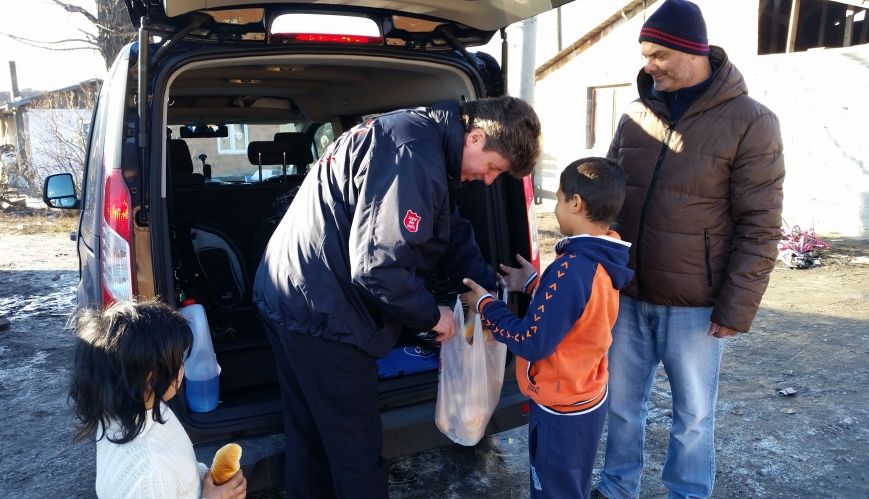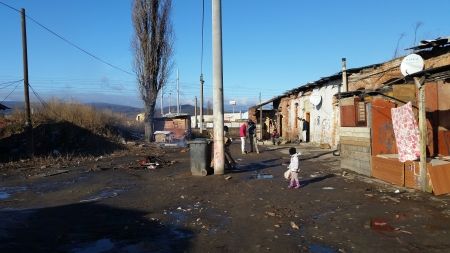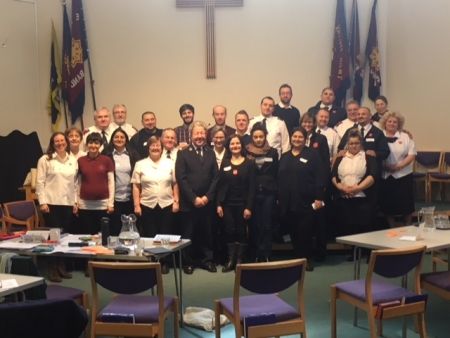The Salvation Army uses International Roma Day to call for improvements in living conditions and inclusivity

The Salvation Army uses International Roma Day to call for improvements in living conditions and inclusivity
Captain Vitalie Chiriac and Lieutenant Roman Farkas, deliver bread to a small Roma settlement near the town of Pezinok, Slovakia.
To mark International Roma Day on Sunday 8 April, The Salvation Army’s European Union Affairs Office has published a statement in response to the EU framework for National Roma Integration Strategies.
It calls on the EU to do more to improve living conditions for Roma people (sometimes known as travellers or gypsies), to increase inclusion and to address “institutionalised anti-gypsyism”.
 Roma settlement in Pezinok, Slovakia.
Roma settlement in Pezinok, Slovakia.
The statement explains that, motivated by its Christian faith to fight for justice, The Salvation Army “has a long history of working with people who are vulnerable, marginalised and exploited across the world ...
“[It] has a long tradition of work with Roma people, both in their home communities and as EU internal migrants, and effectively employs Roma in the structures of our social services and church ministries, serving therefore as a model of inclusion.”
The Salvation Army provides practical support to Roma communities in a number of locations across Europe. In Romania, the Geneza Centres in both Iași and Ploiești support vulnerable young Roma people. In the capital, Bucharest, a ministry team provides food, drinks and medical assistance while also helping Roma and other vulnerable people to keep documentation up-to-date in order to access other services.
In Slovakia, a parent-and-toddler group provides a midday meal to Roma family members who would otherwise go hungry in the divided town of Plavecký Štvrtok, while in Pezinok a purpose-built community centre is nearing completion.
The Salvation Army has also recently established a European Roma Mission Network, which includes both Roma and non-Roma members of The Salvation Army, to ensure a coordinated approach to its work with Roma in Europe.
 The Roma Mission Conference met for the first time last month.
The Roma Mission Conference met for the first time last month.
The Army’s statement continues: “The EU Affairs Office of The Salvation Army applauds the efforts of the European Commission with the EU framework for National Roma Integration Strategies (NRIS), recognising that the Commission efforts and EU funding are a necessary agent for Roma inclusion in EU member states.
“It also recognises, however, that little progress has been made in the current decade – especially due to institutionalised anti-gypsyism attitudes, which are embedded in several member states.
“The Salvation Army regrets that the EU framework lacks explicit and measurable goals for the member states. In light of any future action following the end of the EU framework for NRIS, The Salvation Army calls on the European Commission for concrete targets to be achieved through EU guidance in the 10 years following 2020, both at the EU and at national levels, promoting equality in education, employment, housing and health ...”
As stated by Major Mike Stannett, head of the EU Affairs Office of The Salvation Army: “The conditions in which many Roma live in their communities are poor, with severely restricted opportunities due to public and institutional prejudices that are rarely seen towards other ethnic minorities in Europe.”